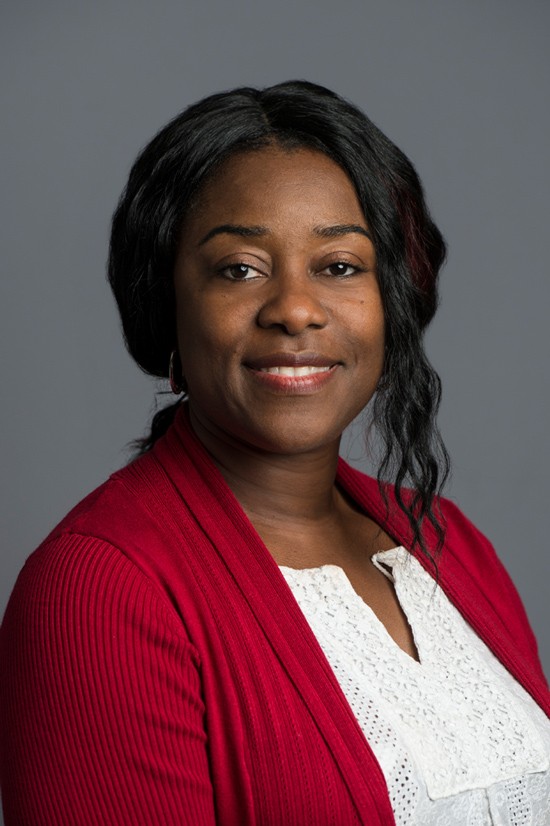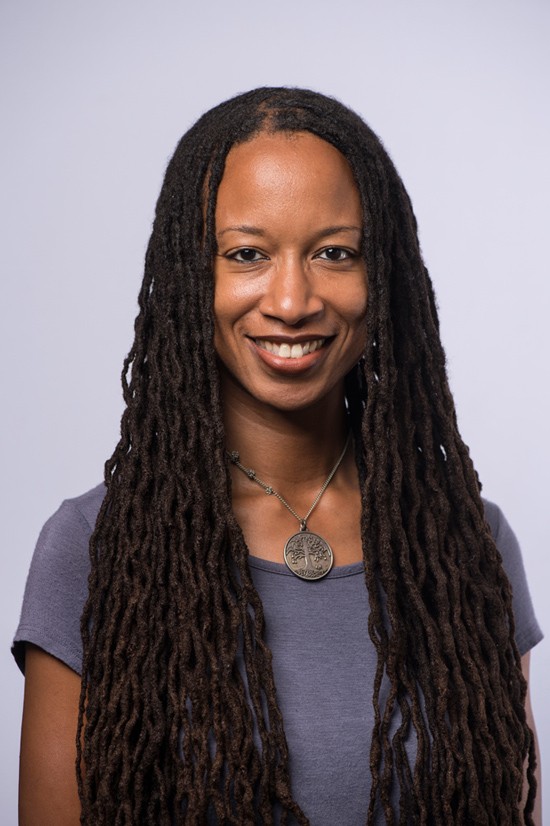This summer, two doctoral students at the Boston College School of Social Work were awarded fellowships to support and further their research. Ngozi Enelamah is this year’s recipient of the Carolyn B. Thomas Fellowship, which supports doctoral students who work with families and children. Melissa Bartholomew is the recipient of the Elaine Pinderhughes Fellowship, given each year to an outstanding African American PhD student.

Ngozi Enelamah
Enelamah has just completed her fourth year of the joint MSW/PhD program, and is focusing her dissertation research on early childhood development in sub-Saharan Africa. Her proposed research seeks to identify vehicles for elevating the awareness, risk, and protective factors for child mental health issues. Her research has roots in a 10-year career in public health in Nigeria, where she supported maternal and child health programs that promoted the benefits of immunizations, sought to prevent mother-to-child HIV transmission, and helped educate adolescents about reproductive health.
“There’s a low level of awareness of mental health concerns in Africa, because the focus has been on family planning and preventing deaths from early childhood diseases. We need context-specific measures of how a child is on track developmentally (physically, cognitively, socially, and emotionally)—these have implications for school readiness, flourishing as part of a larger community, doing well academically, and having future success,” Enelamah says.
Her interest in early childhood development and mental health led her to the U.S. and the Harvard Graduate School of Education. At Harvard, Enelamah earned a master’s degree and learned how school programs can address physical and mental health. She is pursuing a PhD as she sees social work as a confluence of health and education programs, effectively bridging policy and practice. “My hope is that some of my work can contribute to the awareness of mental health problems and that I can generate information that policy makers in sub-Saharan Africa can see and act on,” says Enelamah.
She recently learned that her doctoral research was reviewed and scored for a prospective dissertation award from the National Institutes of Health, a first for a BCSSW doctoral student. This award helps support dissertation research and, if successful in the revised submission, would position Enelamah to apply for NIH grants in the future. “It’s been a stretching exercise, and I am hoping for very positive outcomes,” she says.
Enelamah is thankful for her BCSSW mentors in the PhD program and sees the Thomas Fellowship as both a welcome recognition of her work in the field and a prestigious addition to her résumé. “It’s gratifying, an acknowledgment of my previous efforts, my current efforts, and the work I'm going to do in the future,” she says.

Melissa Bartholomew
Bartholomew is also embarking on her fifth year of the joint MSW/PhD program, and is honored to be the recipient of the Pinderhughes Fellowship for the second time, having also received this award in 2017. The fellowship will support her research, which focuses on the impact of racism, incarceration, and other systems of oppression on the mental health of Black people, and the role of spirituality in their resilience.
She views racism through multiple lenses: psychological, legal, spiritual, and historical, and aims to build a bridge to bring them together. “Dismantling racism is so big that we must develop the capacity to work across disciplines. My background has prepared me for the task of building bridges across disciplines and equipping social workers, lawyers, and ministers for this work. I love social work because it is a discipline where I can explore the multiple dimensions of the human condition and cultivate healing justice by developing multidisciplinary strategies for eradicating racism within individuals and society,” says Bartholomew.
Social work builds on her background in law and ministry. She spent nearly a decade working as a public interest lawyer before being called to the ministry. She received a Master of Divinity from Harvard Divinity School in 2015, where her focus was racial justice and healing. Realizing that she needed more tools to work on the insidious, systemic roots of racism, she decided to pursue the field of social work. “This is spiritual work, but it became really clear to me that in addition to bringing people to the table for reconciliation, we have to address the internal psychological wounds of racism in order for any work at the table to be effective. Social work allows me to bring all my skills to bear on eradicating racism and healing the wounds,” explains Bartholomew.
In spring 2018, she co-founded the Racial Justice Symposium at BCSSW with her colleague and fellow doctoral student, Dale Maglalang. The full-day seminar brought researchers and practitioners together from institutions and organizations throughout Greater Boston and from outside of the state to explore the theme Racial Trauma and Healing in Social Work: Research, Policy, and Practice.
Last spring, Bartholomew co-taught Restorative Justice: Transforming the Law from Within at Boston College Law School, a course she co-designed. She will teach Diversity & Cross-Cultural Issues this fall at BCSSW. “My experience teaching this past year has reaffirmed my belief that the classroom is an important space for transformation, and teaching is an integral part of my work,” she says.
For Bartholomew, the fellowship affirms what she sees as her life’s mission, and is a powerful recognition of the award’s namesake. “Elaine Pinderhughes is a pioneer in this work of addressing racism and continues to be active,” she says. “I’m blessed to build on the foundation that she’s laid. The fellowship is encouragement that I’m on the right path toward upholding the Pinderhughes legacy.”

